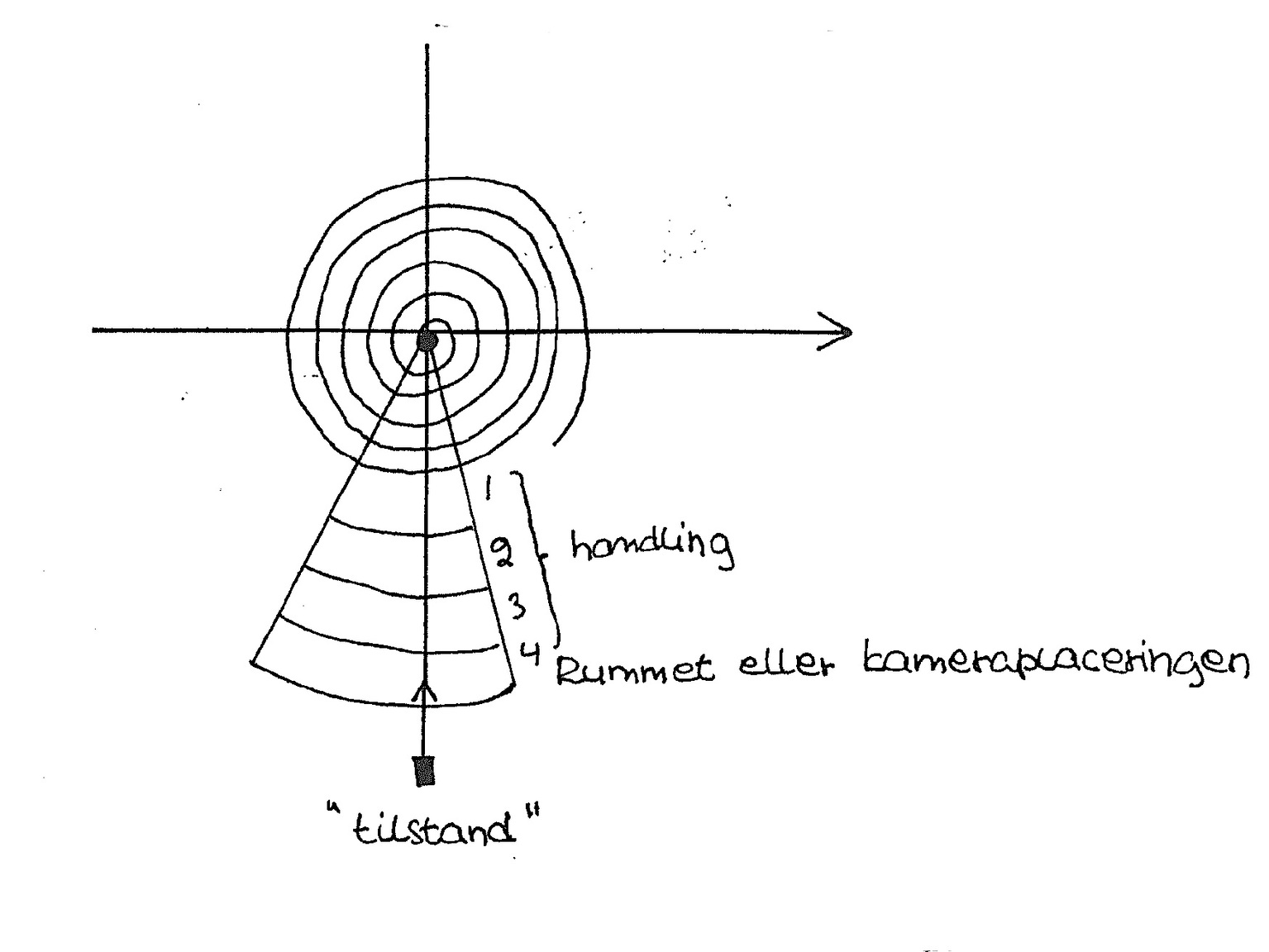Forelesning, Filmvisning

Non-linear Narrative Structures: The Dramaturgy of the Spiral
The Art Academy is pleased to announce the first of two events focusing on non-linear narrative structures. Co-organised by artist Kajsa Dahlberg and Associate Professor Lisa Rosendahl, the first session will feature a lecture by Gender Studies scholar Ingvil Hellstrand and a screening of a new film by Dahlberg made in collaboration with Gritt Uldall-Jessen.
Time: Wednesday February 20, 6.00 - 9.00 pm.
Place: Prosjekttorget (ask the reception for directions), Oslo National Academy of the Arts, Fossveien 24.
This event will be held in English.
The understanding of time as linear and progressive has been central to the development and self-image of European modernity stretching back to imperialism. This way of perceiving and telling about the world has enabled humans to believe, experience, and describe interconnected things as if they were separate, resulting in the normalisation of an ever expanding exploitation of life, labour and the environment.
How can we develop a sensitivity to other, human and more-than-human, temporalities? How might they change the way we relate to each other and the world? What kind of alternative narrative structures can make room for stories that are sorely needed but not yet available?
The evening will be preceded by a separately announced workshop for Art Academy students exploring how non-linear spatial constructs might affect relations of knowledge production.
Programme
6.00pm Welcome and introduction by Lisa Rosendahl and Kajsa Dahlberg
6.20pm Storying the world: Worlding practices as a feminist project
Lecture by Ingvil Hellstrand
Feminist philosopher Donna Haraway suggests that knowledge and understanding about the world is produced through various story-telling practices (1989:4); that is, ways of telling or storying the world. These storytelling practices are key to how we perceive the world, and for what kind of knowledges we form and learn: stories about origins and knowledge production, and stories about power, nature, culture, history, norms and relations. Why do we understand the way we do, and what shapes our understandings and stories about the world in which we live and are surrounded by? In this talk Hellstrand draws on genealogies from fairy tales and speculative fiction to critical worlding practices as a feminist project, and argues that practices of storying the world – worlding practices – are closely interconnected to power structures and knowledge regimes. Thus, it matters who gets to tell the story, what is told and for whom.
7.15pm Screening and introduction by Kajsa Dahlberg
Kajsa Dahlberg´s new film is based on a conversation between the artist, her friend and colleague Gritt Uldall-Jessen and the Danish playwright and dramaturg Ulla Ryum. During the 1960s and 1970s, Ryum developed the so-called Spiral-dramaturgical model. This model distances itself to the linear, Aristotelian, storytelling tradition that forces the spectator to accept the conditions for the plot. Instead, Ryum's model opens up for critical reflection and thus gives the viewer the opportunity to search around in the course of history. The model is based on the experience that linear time works at the expense of the cyclical and material conditions for our lives. It seeks associative relationships between images instead of continuity and development. Unlike a linear temporality where a position excludes and displaces the other, Ryum's model instead opens for conflict and thereby invites to a common ethical room with space to accommodate difference and disagreement. This approach is also reflected in how Ryum choses to respond to the questions posed to her in the film, resulting in an associative conversation that seems to move freely in time and space.
BIOS:
Kajsa Dahlberg is a visual artist based in Oslo and a research fellow at the Royal Institute of Art in Stockholm. Dahlberg took her master degree at the Malmö Art Academy in 2003 and was a fellow at the Whitney Independent Study Program in New York in 2007-08. Her work has been shown in solo exhibitions at the Neuer Berliner Kunstverein in Germany, The Museum of Contemporary Art in Roskilde, Parra & Romero in Madrid, Lunds Konsthall and Index in Stockholm, as well as in group shows and biennials such as 8 Bienal do Mercosul in Brazil, Manifesta 8 and at Moderna Museet in Stockholm.
Ingvil Hellstrand (PhD) is Associate Professor with the Network for Gender Studies at the University of Stavanger (UiS). She holds an MA in women’s studies from Lancaster University, UK, and a PhD in gender and cultural studies from UiS. Her research interests are speculative fiction and worlding practices, posthumanism, bioethics and feminist theory. She is one of the founding members of The Monster Network, an international platform for exploring the figure of the monster and the monstrous. Her current research centres on science fiction as a method, welfare technologies, and posthuman ethics.
Lisa Rosendahl is Associate Professor of Exhibition Studies at KHIO. She is the curator of the next two editions of the contemporary art biennial GIBCA to be held in Gothenburg in 2019 and 2021.
The next event in the series on non-linearity will be the performance lecture ‘Retrograde Futurism’ by London-based artist Ayesha Hameed, taking place at KHIO on 20 March.